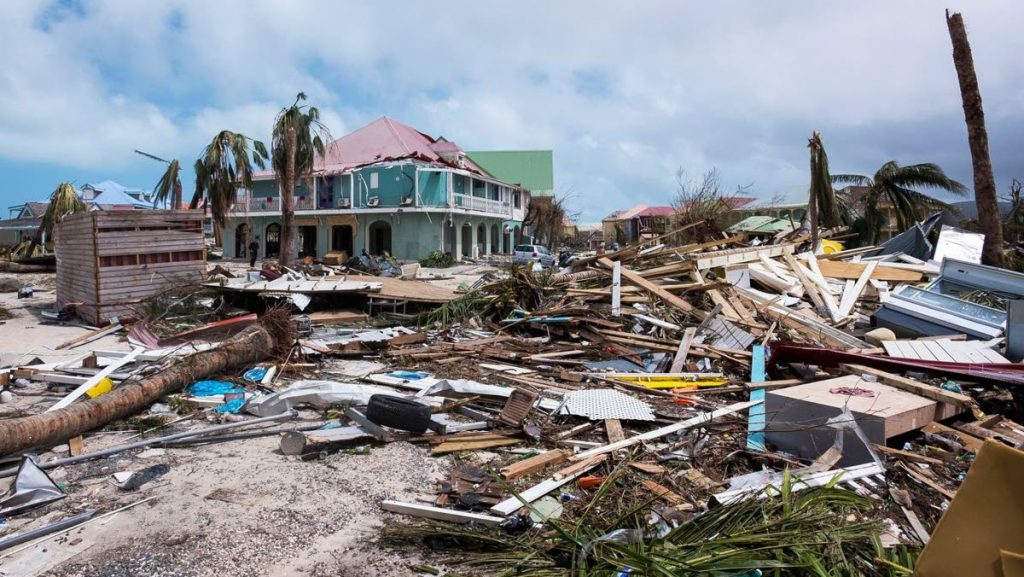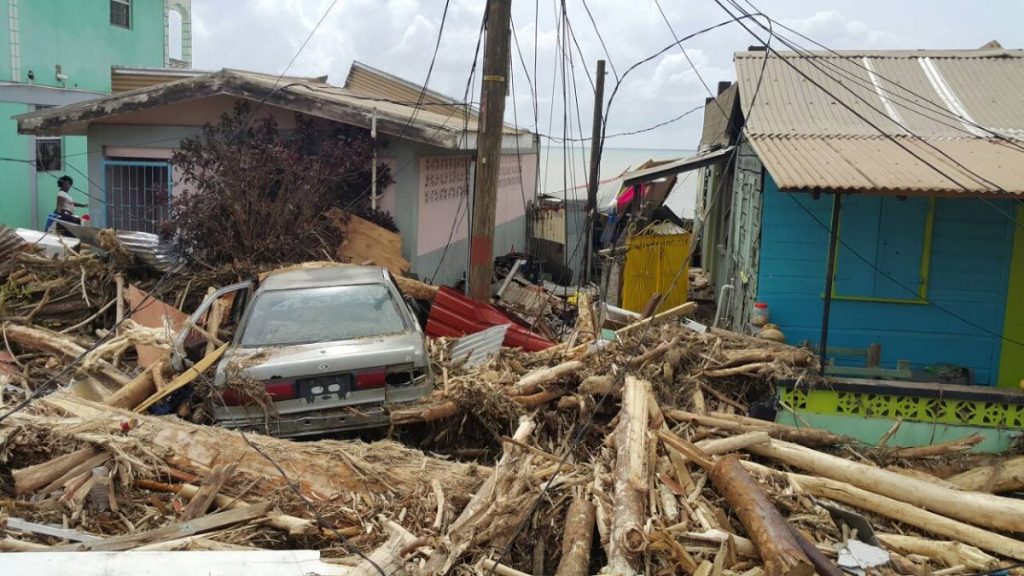Hurricanes prompt hike in property insurance rates

PROPERTY TAX may not be the only worry for property owners this year, as the Association of TT Insurance Companies (ATTIC) announced there would be an impending hike in property insurance premiums.
Why? The answer, in short, is because of hurricanes.
ATTIC, in an advertisement in local newspapers on Wednesday announced that “events” in the international insurance and reinsurance markets were set to impact local insurance markets and in effect raise premiums across the Caribbean.
“Our general insurance members have shared with us developments in the international arena which are impacting their operations and which have implications for pricing,” said Paul Traboulay, ATTIC president.
Guardian Insurance Group CEO, Ravi Tewari, in a phone conversation with Sunday Newsday explained that each company will make its own decision on increases but he could not say exactly when the hike will take effect. Guardian Group, he said, will raise their premiums during the course of 2021.
“The conclusion is because of all the changes in the reinsurance markets, property rates will have to go up,” Tewari said.
He added that the increase would be by, at minimum five per cent. Traboulay told Sunday Newsday, because of the rises in reinsurance prices, the hike could go well into the double digits.

Reinsurance companies, in essence, are the companies which insure insurance companies. These companies are one of the main stakeholders in property insurance, as local insurers depend heavily on them to take on risks too big for the company to take on itself and support the company in the event of a claim coming from a catastrophic event – which in our region is usually a hurricane.
A confluence of impacts
But the reinsurance market has been under fire – or rather taking water – for the past few years.
“According to a report by Moody’s Investor Services Inc, reinsurers have faced a confluence of impacts on their business,” ATTIC said in their advertisement.
The advertisement cited low interest rates, increased court judgments and settlements, and three years of “global catastrophe losses” as part of the impacts.
“Further compounding this is the ongoing uncertainty surrounding liability for infectious diseases, covid19,” ATTIC said.
The constant challenges faced by local insurers in accessing foreign exchange is also making the situation worse, because it contributes to delays in making payments to reinsurance companies.
In contrast to these international trends, property insurance rates in TT have declined and are significantly lower than other Caribbean countries.
“This trend is no longer acceptable for well-known reinsurance supporters of our market,” the advertisement said.
Irma, Maria and your premium
The Caribbean is a unique region when it comes to property insurance, Tewari explained. That is because it is situated right in the middle of the hurricane belt and, although devastation from hurricanes leading to claims payouts may not occur for years, one hurricane could wipe out decades of profit.

Take for example Hurricane Irma, which made landfall on Barbuda in 2017. Irma, dubbed the most powerful Atlantic hurricane in recorded history, was a category five storm when it hit Barbuda. The death toll was 129 people. It levelled 90 per cent of the buildings, destroyed all communication on Barbuda, and left 60 per cent of the population homeless.
Catastrophe risk modeller RMS estimated an insurance and reinsurance industry impact for the United States of US$25 billion to $35 billion, and for the Caribbean, losses ranging from US$10 billion to US$12 billion.
The same was for Hurricane Maria, which hit in the same year. Catastrophe modelling from AIR Worldwide estimated losses from Maria in the Caribbean to be between US$40 billion and US$85 billion, with 85 per cent of the losses coming from Puerto Rico.
Tewari said in recent times, the reinsurance industry experienced a boom, as new money came into the market from pension funds with the belief that companies could benefit from investing there.
“That was causing cheaper rates for local markets,” Tewari said. “But a slew of hurricanes hit the region and they started to lose a lot of money, and investments left. Rates started going up steeply. We will have to find a way to balance the equation.”
But can’t insurance companies do something to ensure that the customer doesn’t feel the pinch? Traboulay, in a conversation with Sunday Newsday, said they already are.
“General insurance companies have had to deal with rate increases since 2018. TT insurers have been, to varying degrees, absorbing rate increases or tweaking their operations in order to improve efficiencies and remain competitive.”
But just like oil, if insurance companies deliver their product in the downstream for a price that is less than the cost of processing their upstream product – in this case reinsurance – then they will run at a loss.
Traboulay noted that along with the customer, the reinsurer must also be satisfied with the price of insurance products, because most times they are the ones who bear the brunt of the risk.
“What reinsurers have been saying is that current prices in TT are becoming increasingly less attractive given their evaluation of the risk,” Traboulay said.
More hurricanes to come
This year, the risk of hurricanes will not change, according Tropical Storm Risk. The storm tracker website issued an extended range forecast for 2021, predicting activity that is above normal.
The report predicted 16 named storms, seven hurricanes and three major hurricanes.
Tewari said TT’s insurance rates are much lower than other islands, because of where it is situated. Being a the bottom of the archipelago, TT has a lower chance of being hit by a hurricane, a fact that affects rates locally but does not matter to reinsurance companies.
“The Caribbean is a drop in the bucket for a big reinsurer,” Tewari said. “We are all put in the same bundle. As far as the reinsurer is concerned we are all one Caribbean, and TT suffers from that.”
He said as the rates increase, the differential in insurance rates remain. This means that while prices will be higher, TT’s rates will remain highly competitive.


Comments
"Hurricanes prompt hike in property insurance rates"